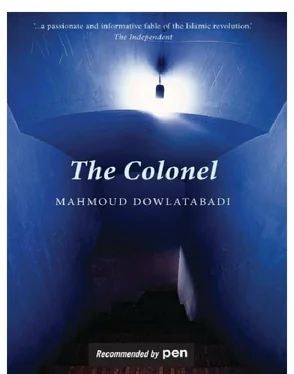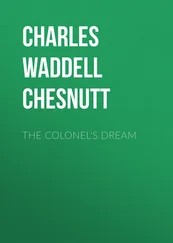Amir’s untimely afternoon sleep, the sleep of one permanently exhausted by the struggle, the mayhem, the speeches and arguments and the endless to-ing and fro-ing, might have lasted until the following morning if the knocking on the door had not shaken him out of bed, with an even grumpier face than usual. Now, shattered and only half-awake, he thought how much better it would have been if nobody had knocked at the door and Mohammad-Taqi had not called him and… But it was too late and things had gone too far. He had to get up, switch on the light and wait for his visitor to come in. The switch was on the pillar beside the door. All he had to do to turn on the light was to reach out his hand for it.
“Brother, there’s someone here to see you!”
The light was now on. Amir’s gaze fell on the stairs, on a pair of shiny, pointed shoes, spattered with mud, and a pair of trouser legs with knife-like creases above them. “Please come on down,” he called, as if his visitor would not have come down if he had not said it and, as the legs came down the stairs, Amir recognised the tails of Khezr Javid’s dark overcoat. His heart missed a beat. Taking his time, Khezr descended and, as he did so, more of him became visible to Amir: his coat buttons, chest and shoulders, and finally his face, his glasses and the fedora on his head. This was something new for Amir.
Amir stood up quickly from where he had been sitting on the edge of the bed, not out of respect for his visitor but driven involuntarily by some innate fear. He found himself standing respectfully before Khezr Javid, with a greeting on his lips. Khezr took his glasses off his nose, rubbed his eyes with the back of his hand, smiled and propped his stick in the corner against the wall as if it were a nuisance. It suddenly dawned on Amir that the walking-stick and glasses were a disguise. In all the time that Khezr had interrogated him, he had never seen him with a fedora, or a walking-stick or spectacles for that matter.
The smile on Khezr’s face was odder than ever, so odd that it forced Amir to offer him his hand and show him a place to sit. The best place he could find for him was the edge of the bed. Before sitting down, Khezr Javid unbuttoned his coat and took off his hat. Not sure what to do next, Amir pulled up the stool he used for sculpting and sat down in front of him. Then he thought he should get him some tea.
“Brother… can I bring you anything down to drink?”
Amir shouted up to Mohammed-Taqi to bring some tea and then thought he ought to offer to take Khezr’s hat. As he was hanging it on the hook, Khezr got up and took off his elegant dark brown overcoat. Amir took that as well and hung it on the coat rack.
Now, apart from the long moustache drooping over his lips, Khezr Javid was the same person that Amir had first encountered. Khezr put his briefcase down on the bed, dipped into his pocket and pulled out a packet of cigarettes, offering one to Amir. With his gold-plated lighter he lit Amir’s cigarette first, and then his own. He studied the flame over the end of his cigarette:
“You’ve made this place into a studio, then?”
Amir was about to say that he had not yet started seriously, but that he was thinking of taking up sculpture, when he was suddenly reminded of Khezr coming down the prison wing in the middle of the night, pushing a cigarette or two through the cell hatches and saying: “Golds… only an ass smokes Golds.”
“Sculpture… that’s a good idea.”
“Yes, if I can manage it,” Amir replied, far away.
“I gather you’ve been having some exciting meetings?”
“I expect they’ve entertained you.”
“No, why?”
Amir shut up. He had realised that he had forgotten who Khezr was and what he did for a living. He had started talking to Khezr as a friend, sounding like someone worried about what others thought of him, and wanting their approval. If he had not quickly stopped himself, Khezr would have stopped him anyway. Khezr — ever the professional — quickly changed the subject:
“Haven’t you got a telephone here?”
This could have been taken any number of ways, for it was not hard to find out whether the colonel had a telephone in his house or not. Even so, Amir’s first thought was that Khezr just wanted to make a call, but then he thought that perhaps he wanted to be absolutely sure whether there was a telephone in the house or not. Faced with Amir’s silence, Khezr turned to sarcasm:
“What, not even a cordless phone? You’d be amazed at the things people have in their houses these days!”
Amir laughed. “No.” He was sure that, before he had come to the house, Khezr had investigated all the security angles and already knew most of the answers to his questions.
Mohammad-Taqi was now outside his room with a tray of tea; following Khezr’s glance, Amir could see a sliver of Mohammad-Taqi through the half-open door. He got up, went to the door and took the tray off him. Once Mohammad-Taqi had gone, he offered Khezr a glass.
“Was he listening at the door?”
Amir said he did not think Mohammad-Taqi did such things, but without thinking he got up and pushed the basement door to, feeling Khezr’s eyes on him all the way. Khezr turned almost bashful:
“I’d heard Mohammad-Taqi was in Tehran. I’d rather it hadn’t been him that opened the door to me. He’s the only one here I’m worried about.”
Amir was silent, probably preoccupied despite himself with the difference between himself and his brother. He put a lump of sugar in his tea and listened as Khezr went on:
“It’s true that he escaped arrest, but I had seen reports about him and I recognised him. It was because of Mohammad-Taqi that I was in two minds about coming here. Now I don’t want him to know who I am, although I am sure he could find out through his friends, if he really wanted to. But I don’t want him or anyone else to know. Got that?”
Amir kept his eyes glued to the floor, but Khezr Javid was clever enough to know what he was thinking. He had no doubt prepared himself before the meeting for all possible reactions on Amir’s part. He knew all too well what a bind he had put Amir in. Even so, he probably did not expect Amir to start singing like a canary there and then. After all, Amir’s situation was now quite different to when he had been under arrest and was being interrogated.
Khezr took a sip of his tea. Amir had his head down, but he was sure that Khezr was looking at him all the time, drilling into his forehead with his gimlet eyes. His being sunk in silent thought was presumably annoying Khezr. Amir did not want to be brooding like this, either. He might lose control of himself and start kicking up a fuss about this security policeman being in his house. Who knows what consequences that might have? There were still plenty of people out there who were baying for the blood of hundreds of the likes of Khezr. Khezr, who imagined Amir might be thinking along these lines as well, broke the silence:
“I remembered your address from your file.”
Amir just nodded. But Khezr, trying to break his concentration, went on: “So I came straight here. I thought you’d be surprised to see me, but you haven’t reacted at all. Why not?”
Still with his head down, Amir seemed to be talking to himself: “It’s amazing, really bizarre. After I was freed I always imagined we might meet again some time, and in a situation just like this. Bizarre, isn’t it?”
“You mean right here, in your house, in this basement?”
“Not here particularly, but in circumstances like this. I always thought so. Isn’t it odd?”
“It’s interesting, not odd. And it’s interesting that I chose your house… Why you? It’s not as though I haven’t got friends in this country. I had over a thousand prisoners to interrogate, and quite a few of them turned. But we didn’t ask you to come over. So why did I choose here, why did I choose you?”
Читать дальше












